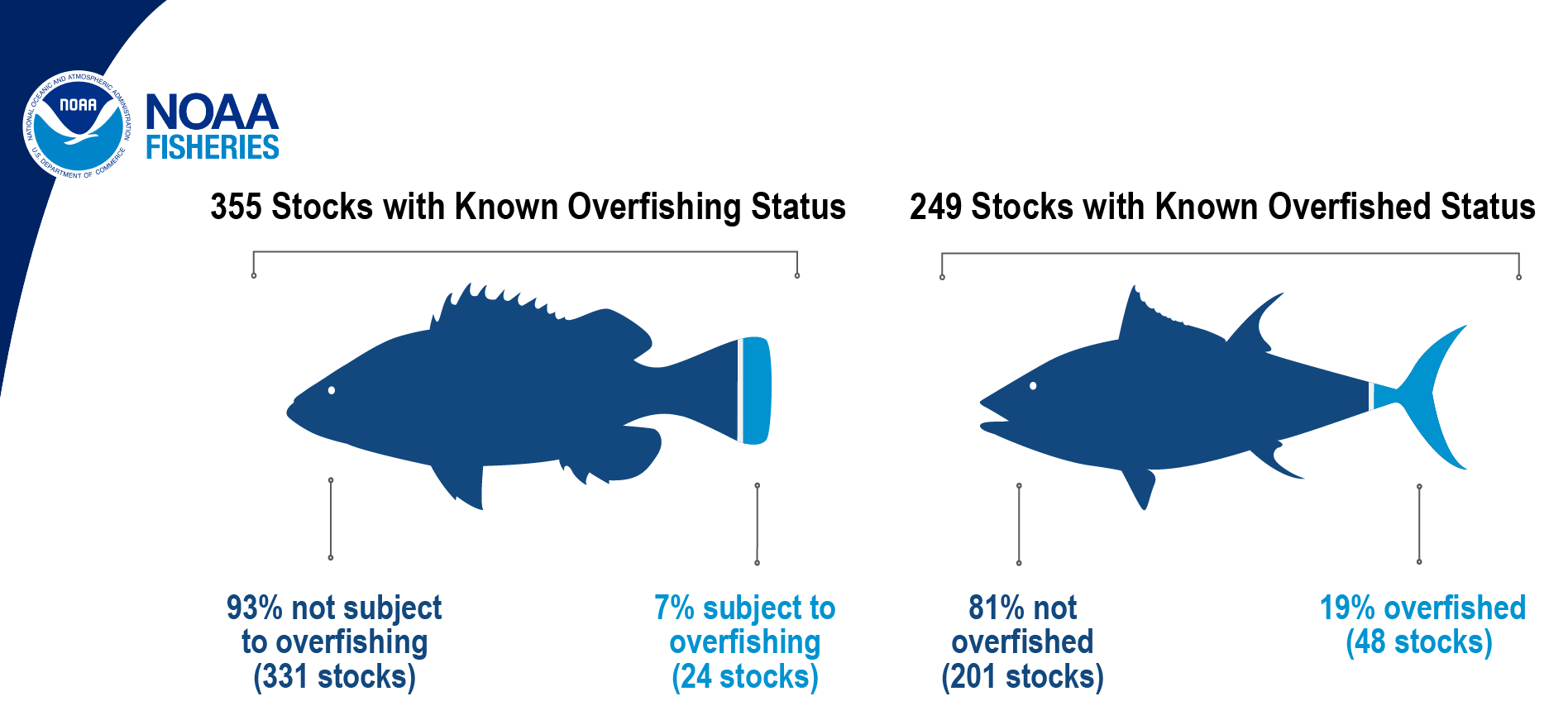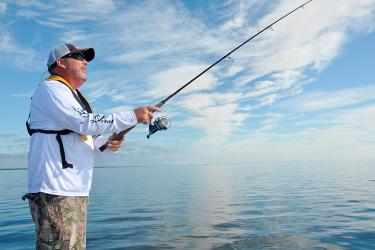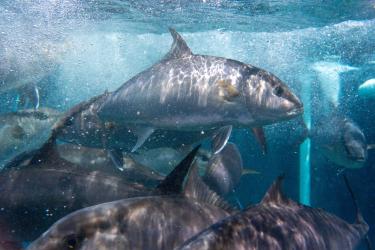Today, NOAA released the 2022 Status of Stocks report, providing a snapshot of the more than 490 fish stocks managed by NOAA Fisheries. Maintaining sustainable fisheries contributes significantly to the U.S. economy, provides important recreational opportunities and helps meet the growing challenge of increasing the nation’s seafood supply.
In 2022, U.S. fisheries data revealed that 93% of stocks are not subject to overfishing and 81% are not overfished. These numbers show slight improvements compared to the 2021 figures of 92% and 80%, respectively. Positive trends were seen this year with the number of stocks on the overfishing list decreasing by two stocks to 24, and the number of overfished stocks decreasing by three stocks to 48.
NOAA Fisheries also implemented new island-based fishery management plans for Puerto Rico, St. Thomas and St. John, and St. Croix this year, consolidating existing Caribbean fishery management plans and bringing 32 new stocks under NOAA’s management authority. These new plans account for differences between fishing sectors, available markets for harvested products, fishermen and their fishing communities, and the social and cultural attributes unique to each island area.

Of the more than 490 stocks managed by NOAA, 355 have a known overfishing status (331 not subject to overfishing and 24 subject to overfishing) and 249 have a known overfished status (201 not overfished and 48 overfished). (Image credit: NOAA)
“This annual report reveals the U.S. remains a global leader in maintaining the sustainable fisheries that drive the blue economy, support coastal communities and play a key role in marine ecosystems,” said Rick Spinrad, Ph.D., NOAA administrator. “NOAA and our partners continue to build on the country’s successful fisheries management approach by advancing policies and plans that help address changing conditions.”
The latest data show that U.S. commercial and recreational fishing supports 1.7 million full- and part-time jobs across the broader economy, generated over $253 billion in sales impacts and contributed $79.4 billion to the gross domestic product.
“Managing fisheries sustainably is an adaptive process, relying on sound science and innovation to conserve species and habitat, and meet the challenge of increasing our nation’s seafood supply in the face of climate change,” said Janet Coit, NOAA Fisheries assistant administrator. “NOAA Fisheries conducted 198 stock assessments in fiscal year 2022, and our work in partnership with the Regional Fishery Management Councils under the Magnuson-Stevens Fishery Conservation and Management Act continues to be key to rebuilding and maintaining sustainable fish stocks.”
NOAA researchers recently developed global forecasts that can provide up to a year's advance notice of marine heatwaves that can cause sudden and dramatic increases in ocean temperatures. These forecasts will help fishing fleets, ocean managers and coastal communities anticipate significant changes in ocean ecosystems. NOAA Fisheries’ distribution website tool also provides information to track the location and movement of marine fish and invertebrate species in U.S. waters, which may be shifting in response to changing ocean conditions.
Sustainable U.S. fisheries play an important role in the nation’s economy — providing opportunities for commercial, recreational and subsistence fishing, and in providing sustainable seafood for consumers. To keep U.S. fisheries operating sustainably, NOAA Fisheries continually adjusts management measures in response to complex challenges including climate change, rebuilding stocks, ending overfishing and developing new forecasting tools to better predict ocean conditions.
For credentialed media, today at 2:00 pm ET, NOAA Fisheries will host a teleconference to provide reporters an opportunity to speak with an expert and ask questions about the 2022 Status of Stocks report. Please email nmfs.pa@noaa.gov for the dial-in information.
Media contact
Katie Wagner, NMFS.PA@noaa.gov, (443) 458-8480


